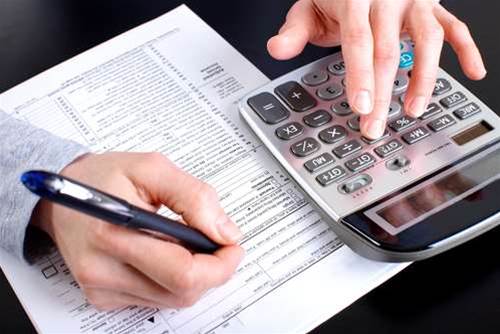The rise of the digital economy and increasing imports of online goods under the $1000 GST-free threshold are putting strain on Australia's tax system, according to a Government discussion paper released today.

The long-awaited tax discussion paper [pdf] - aimed at opening a national dialogue on reforming the tax system - says Australia faces challenges from various areas including technological change.
The rise of the digital economy is one of several factors contributing to the potential weakening of the tax system's ability to raise revenue from traditional sources, as well as the potential increase in economic costs of taxation, the paper argues.
According to Treasurer Joe Hockey, Australia’s heavy reliance on income tax may be unsustainable "as a result of changes driven by globalisation and the rise of the digital economy".
The discussion paper canvassed the issue of lowering the GST-free threshold for goods purchased online below the current $1000.
The issue has been hotly debated for a number of years, with the charge to drop the threshold led by retailers including Harvey Norman chief Gerry Harvey.
Harvey has long argued that Australian retailers are at a disadvantage because Australian consumers are not charged GST on goods worth under $1000 purchased online from offshore retailers.
The Treasury discussion paper said a "cost-effective reduction in the low value threshold could be feasible" given other developed countries have lower thresholds for offshore goods purchased online than Australia.
"There is growing concern both internationally and domestically that the strong growth in online retail spending by consumers will continue to increase imports of low value goods, services and intangibles directly over the internet," the department wrote.
"Without reform, this would increase foregone GST revenue and affect the competitiveness of domestic businesses over time."
However, it pointed out that state and territory governments have not yet been able to agree on an approach to the issue.
The Government will take suggestions from the public on changing the GST, but will only consider proposals "if there is a broad political consensus for change, including agreement by all state and territory governments".
A 2011 Productivity Commission inquiry into the retail industry found strong grounds for the $1000 to be lowered significantly - arguing that goods sourced from overseas should face the same tax regime as those bought locally.
However, it found that removing the threshold completely would cost more than $2 billion to businesses, consumers and government while only generating revenue of around $600 million annually.
It therefore recommended against lowering the $1000 threshold until it was cost-effective to do so.
The Treasury department used today's discussion paper to set out its case for an increase to the GST and cuts to income and company tax, arguing Australia's 10 percent rate for GST was one of the lowest in the developed world.
ATO looks to tech to remove complexity
Current complexity in the tax system is making it difficult for the Australian Tax Office to "design administrative systems, communicate obligations and resolve disputes", according to Treasury.
Advances in technology provide many opportunities for "streamlined digital or online tax system administration that could mitigate the impact of tax system complexity".
Treasury said the ATO was looking at possibly leveraging off systems that business and individuals use for financial purposes unrelated to tax.
"If separate tax reporting obligations can be dispensed with as part of those natural business processes, compliance costs for taxpayers could be significantly reduced," Treasury wrote.
"Further benefits, in terms of faster, more convenient and more reliable service for taxpayers, alongside lower long-term compliance and administration costs, could be realised for taxpayers by embracing digital and online engagement where possible."
The department has asked interested parties for feedback on the processes or systems used by businesses and individuals that could be utilised by the ATO.
The Government will take submissions on its discussion paper until the second half of the year when it released a 'green paper' with options for reform. Policy proposals from the process will be taken to the 2016 election.





.png&h=140&w=231&c=1&s=0)





 iTnews Benchmark Awards 2026
iTnews Benchmark Awards 2026
 iTnews Executive Retreat - Security Leaders Edition
iTnews Executive Retreat - Security Leaders Edition
 iTnews Cloud Covered Breakfast Summit
iTnews Cloud Covered Breakfast Summit
 The 2026 iAwards
The 2026 iAwards












_(1).jpg&h=140&w=231&c=1&s=0)



